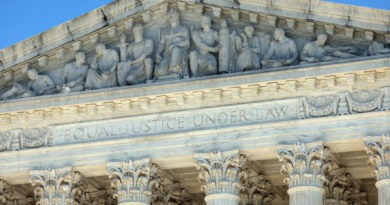California Lawmakers Set to Discuss Vacancy Tax for Commercial Properties
Various property owner organizations, taxpayer associations, and chambers of commerce are against the additional taxes and bureaucratic requirements.
A state senator from California is advocating for a tax on unoccupied commercial properties, arguing that vacant buildings and stores harm business vitality, diminish tax income, and contribute to public nuisances.
Menjivar believes this initiative could stimulate economic growth.
“Unutilized commercial properties signify a squandered chance for community enhancement,” Menjivar stated, as cited in a legislative analysis related to the bill. “At times, they lead to neighborhood deterioration and can become sources of nuisance and public safety issues. These underused areas are ripe for local entrepreneurs, innovative workspaces for emerging businesses, or mixed-use developments that merge residential spaces with commercial amenities.”
The proposal mandates that all commercial property owners in California register annually with the California Department of Tax and Fee Administration (CDTFA), supplying comprehensive information about their properties and justifying any vacancies.
Failure to file would result in penalties, as stipulated by the legislation.
Menjivar asserts that without state regulation, these vacant lots can remain unoccupied for years or even decades.
“To promote development or penalize deteriorating vacant properties, we require data to systematically monitor commercial vacancies and their underlying causes, such as renovation delays, regulatory challenges, or speculative holding patterns,” she stated.
The senator believes if clusters of vacancies are due to prolonged permitting, the state could expedite permit approvals or implement a vacancy tax to encourage productive use.
Additionally, the bill mandates that the state publish detailed information about each commercial property on its public website, including the percentage of commercial properties that are vacant in a given year and the reasons for vacancies lasting over 182 days. The state would also disclose what fraction of commercial properties are situated in blighted areas, among other data.
In November 2022, San Francisco city and county enacted a comparable tax through Measure M; however, this ordinance was later deemed unconstitutional.
This measure imposed an annual tax ranging from $2,500 to $5,000 for each vacant unit, depending on the size of the unit. The tax could increase yearly to a ceiling of $20,000 for owners who allowed a unit to remain vacant for consecutive years.
Nevertheless, the San Francisco County Superior Court ruled in favor of taxpayers on November 26, 2024, asserting that the tax breached the Takings Clause of the Fifth Amendment of the U.S. Constitution.
The court also concluded that the tax infringed on property owners’ constitutional right to privacy under the California Constitution by obligating them to disclose their property through the tax’s implementation.
Moreover, the court held that Measure M contravened the California Ellis Act, prohibiting public authorities from forcing residential property owners to rent or lease.
Various cities have started similar vacancy taxes in recent years.
For instance, Berkeley, located east of San Francisco, implements an empty homes tax on residential properties left vacant for over 182 days annually. The tax rate for empty residential units in duplexes, condos, single-family homes, and townhouses is $3,000 for the first year and $6,000 for subsequent years, while all other vacant residential properties incur a $6,000 tax for the first year and $12,000 each additional year.

Stacked shipping containers begin to surround People’s Park in Berkeley, Calif. on Thursday, Jan. 4, 2024. Brontë Wittpenn/San Francisco Chronicle via AP
Oakland also imposes an annual tax of $6,000 on residential, non-residential, and undeveloped properties, while condos, duplexes, and townhomes are taxed $3,000 yearly. This tax applies to privately owned properties that remain unoccupied for more than 50 days each year, with several exemptions available.
Senator Menjivar’s proposal faces significant opposition from a coalition of commercial property owner associations, building managers, taxpayer advocates, hotel and lodging representatives, mortgage bankers, housing associations, retailers, and numerous chambers of commerce across the state.
“Vacancy is typically influenced by market conditions—not neglect—especially as sectors like retail, office, and industrial gradually recover from the pandemic,” the association noted in an opposition statement. “This tax would penalize property owners amid economic uncertainties and risk further destabilizing struggling markets. SB 789 would also undermine local property tax revenues, diminish property values, and incite reassessments under Prop. 8—leading to lasting funding losses for schools, municipalities, and essential services.”
Furthermore, the association contends that the legislation imposes significant administrative burdens.




